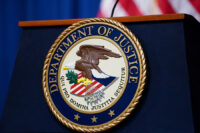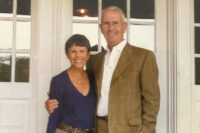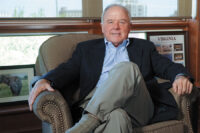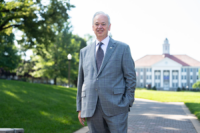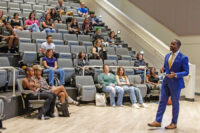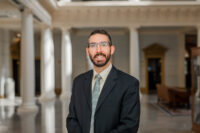Top Five: January 2026
1 | University board fight ends; Spanberger to fill 22 seats The legal battle between Gov. Glenn Youngkin and state Senate Democrats over university boards of visitors ended as both sides acknowledged the matter would be made moot by the new General Assembly session and change in gubernatorial administrations. (Dec. 9) 2 | SAIC shakes […]
DOJ sues Virginia over in-state tuition for immigrants
The Justice Department sued Virginia over a law granting in-state tuition and aid to undocumented immigrants at public colleges.
University board fight ends; Spanberger to fill 22 seats
The legal battle between Gov. Glenn Youngkin and state Senate Democrats over university boards of visitors ended quietly Monday, as both sides acknowledged the matter would be made moot by the upcoming Virginia General Assembly session.
GMU law school dean leaving at end of academic year
After making accusations against George Mason University's president in congressional testimony in August, the dean of Mason's Scalia Law School is leaving at the end of the academic year.
ODU gets $15M gift from Brock to launch nutrition institute
Old Dominion University has received a $15 million gift to establish a nutrition and lifestyle medicine institute.
Manning defends U.Va. negotiations with DOJ
Charlottesville investor and University of Virginia board member Paul B. Manning sent a letter Monday to U.Va.'s Faculty Senate and fellow board members defending his actions in university negotiations with the U.S. Department of Justice.
JMU focuses on strengths for strategic planning
JMU President Jim Schmidt outlines plans to boost rural health care, expand nursing programs and strengthen civility on campus.
100 People to Meet in 2026: Educators
As leaders in higher education, these educators and administrators are passing on their knowledge to the next generation of Virginians.
U.Va. continues presidential search, despite Spanberger’s call for pause
The University of Virginia's presidential search committee has continued its work in hiring a successor for former President Jim Ryan, despite recent calls from Gov.-elect Abigail Spanberger and groups of faculty and staff to pause the process.
Youngkin responds to Spanberger on U.Va., blasting ‘hyperbole and factual errors’
Gov. Glenn Youngkin wrote a heavily critical letter this week to Gov.-elect Abigail Spanberger in response to her letter attempting to delay hiring the University of Virginia's next president until she takes office in January 2026.
Ex-U.Va. president alleges board members ‘complicit’ in exit
Former University of Virginia president Jim Ryan on Friday sent a 12-page letter to the university's Faculty Senate detailing his sudden resignation.
Regent University names law school dean
Regent University has tapped longtime administrator and faculty member S. Ernie Walton as the dean of the Regent University School of Law.



